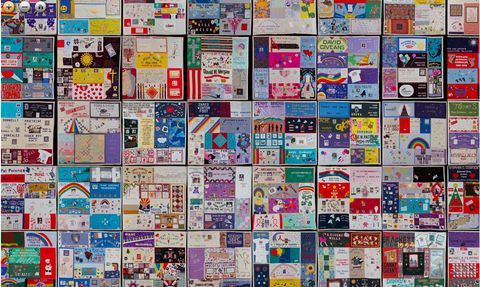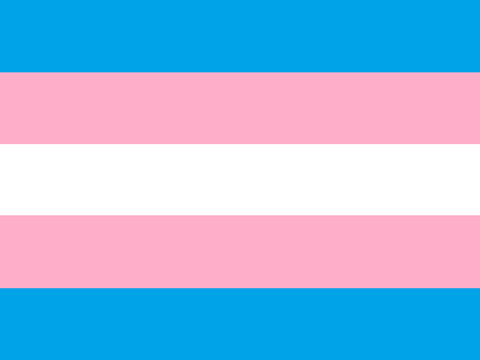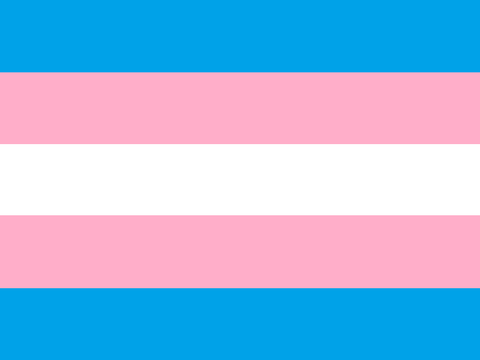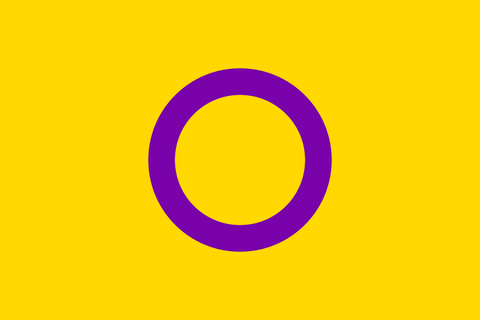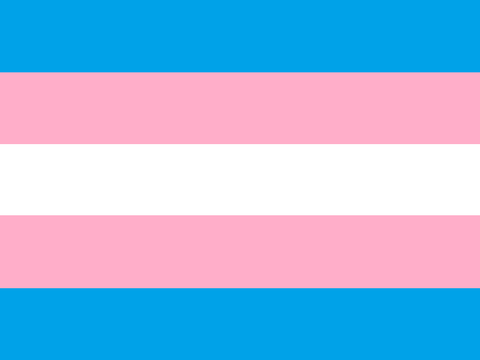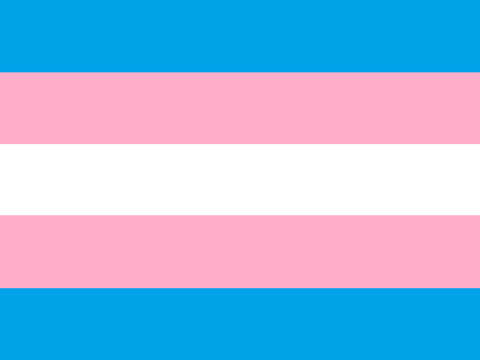The reality of “conversion therapy” practices in Singapore // LGBT Rights in Singapore
| Updated on
Warning: This article describes psychological abuse, domestic abuse, and trauma. Help is available.
In recent months, the topic of “conversion therapy” piqued public interest. Heated arguments were made for and against “conversion therapy” programmes, but few featured the voices of abuse survivors. Over the past few weeks, we’ve spoken to many brave individuals who were willing to lend their experiences and voices to this public discourse.
This is the last of our 4-part series. Read the other stories here.
* * *
Many years ago, I wouldn’t have believed that “conversion therapy” practices exist in Singapore. They sounded like the stuff of nightmares.
But in 2018, I began seeing ads from a religious group claiming to be LGBTQ-inclusive. “Don’t just come out, come home,” they said, complete with a rainbow background. People soon expressed outrage on social media, with many accusing them of masquerading “conversion therapy” practices with diversity-friendly language and catchphrases.
My awakening to the existence of “conversion therapy” in Singapore was a slow one. But it hastened abruptly when my friend told me how their parents made them go through such sessions. Suddenly, it wasn’t just a distant, illusory concept anymore.
Over the past few months, I began talking to other “conversion therapy” survivors in Singapore, to understand how they felt, and how it affected them. Their stories, which were published in previous parts of the series, showcase not only the horrors of such abuse, but also their strength and courage as survivors.
This article is the last of the series, and takes a comprehensive look at so-called “conversion therapy” practices in Singapore.
Here’s everything you need to know.
Contents
- What exactly is “conversion therapy”?
- Why is suppression also a form of “conversion therapy”?
- What’s with those inverted commas in “conversion therapy”?
- What actually happens in “conversion therapy” sessions?
- Does “conversion therapy” work?
- Is “conversion therapy” OK if people seek it voluntarily?
- Is “conversion therapy” OK if adults volunteer to take part in it?
- Who allegedly conducts “conversion therapy” in Singapore?
- Focus on the Family Singapore (FOTFS)
- Church of Our Saviour (COOS)
- Truelove.is by 3:16 Church (TLI)
- Individuals
- Is “conversion therapy” legal in Singapore?
- Take action against “conversion therapy” today

What exactly is “conversion therapy”?
A United Nations report classified any attempt by someone to change or suppress another’s sexual orientation or gender identity to be a form of “conversion therapy” (page 4).
In other words, any organisation / person that attempts to “turn someone straight” is engaging in “conversion therapy”. On top of that, organisations / persons that encourage LGBTQ+ folks to suppress their sexuality or gender (e.g. by promoting celibacy for gay people) is also said to engage in “conversion therapy”.
“Conversion therapy” practices typically assume that anything that deviates from heterosexual or cisgender behaviours are wrong, and aim to bring about heterosexual or cisgender behaviours in their participants (ILGA, page 17).
Physical and/or psychological violence is typically (though not always) employed in such attempts.
Why is suppression also a form of “conversion therapy”?
When “conversion therapy” practices first became popularised in the US in the 1980s, practitioners claimed that sexualities and gender identities can be changed. Their practices were thus focused on changing (or “converting”) the identities of LGBTQ+ folks.
However, scientific and medical research soon caught up, and medical organisations worldwide began condemning “conversion therapy” practices, stating that sexualities or gender identities cannot and should not be wilfully changed.
Over the years, the general population (that’s you and I) became more scientifically literate, and claims that sexualities or gender identities can be changed began to (rightfully) sound dubious. “Conversion therapy” practitioners — whose methods and motivations aren’t based on science — still wanted to pursue their objective of eradicating LGBTQ+ identities, and so had to change their approach.
They stopped claiming that sexualities or gender identities can be changed, but instead focused on encouraging / forcing LGBTQ+ folks to suppress their identities. Celibacy and suppression became the new “conversion” outcome.
The core idea behind such practices remains that non-heterosexual and non-cisgender identities are undesirable and need to be intervented and eradicated. Researchers have thus classified them as yet another form of “conversion therapy”.
What’s with those inverted commas in “conversion therapy”?
Researchers and experts who study “conversion therapy” and its effects agree that they not only don’t work, but cause long-term harm on participants (more on this later). For that reason, experts think that the term “conversion therapy” is misleading (page 18).
To start off, the term “therapy” suggests that being LGBTQ+ needs to be “cured”, and that such practices are based on medical or scientific research. Both of these are not true (page 115). On top of that, “conversion therapy” practices are often traumatic instead of therapeutic.
For those reasons, it’s common practice to use inverted commas when referring to “conversion therapy”, to highlight the fact that the term is misleading. Other names, such as “conversion practices” or “reparative therapy” are sometimes used interchangeably for “conversion therapy”, and should also be used with inverted commas.
Terms like “conversion abuse” or “conversion trauma” more accurately describe the practices, and are preferred by some.
“Conversion therapy” perpetrators in Singapore have mostly distanced themselves from the term due to widespread condemnation of such practices. Many attempt to disguise their abusive practices with euphemisms and fancy marketing; however, since their practices remain rooted in the notion that LGBTQ+ sexualities and gender identities need to be changed or suppressed, these attempts are little more than sugar-coating.
What actually happens in “conversion therapy” sessions?
Warning: Physical and psychological abuse are described in this section.
Because “conversion therapy” isn’t based on scientific research, it isn’t carried out in a standardised way. Practices vary widely and depend on the practitioner’s beliefs, though common patterns can be observed.
In general, physical and/or psychological violence are used in various degrees, with the aim of conditioning the participant to form negative associations with their own sexuality or gender identity. Religion-based “conversion therapy” practices may involve conditioning the participant to believe that they will suffer severe punishments (e.g., go to hell) if they were to remain LGBTQ+.
The most extreme documented case of “conversion therapy” in Singapore involved the eventual use of inhumane electric shocks to “treat” the participant. The survivor suffered from memory loss, and only realised that he was in a psychiatric facility 2 months into his stay.
Exorcisms may play a role in religion- or spiritual-based “conversion therapy” practices. In both Tom’s and Iani’s examples, physical violence (slapping and beating) accompanied the exorcism sessions.
“Conversion therapy” practices in Singapore remain poorly documented, perhaps due to the lack of interest by the state and medical organisations to investigate or regulate such practices. The International Lesbian, Gay, Bisexual, Trans and Intersex Association (ILGA) has compiled a list of “conversion therapy” practices that are known to have occurred around the world (pages 21–48).
Does “conversion therapy” work?
No, it doesn’t.
The American Psychological Association did a thorough review of scientific research on “conversion therapy” practices and efficacies in 2007. They concluded that those practices are unlikely to change a person’s sexuality or gender identity, and may in fact cause harm. On top of that, over 70 national and international professional healthcare associations have now rejected “conversion therapy”, saying that it lacks medical basis and threatens the health of participants (page 115).
“The task force conducted a systematic review of the peer-reviewed journal literature on sexual orientation change efforts (SOCE) and concluded that efforts to change sexual orientation are unlikely to be successful and involve some risk of harm, contrary to the claims of SOCE practitioners and advocates.”
— American Psychological Association Task Force
Research by the United Nations has found that “conversion therapy” often inflicts significant damage on survivors, from psychological trauma such as depression, to stress-induced illnesses such as stomach ulcers (pages 13–14).
Sam, who voluntarily participated in a “conversion therapy” programme offered by a church in Singapore, ended up suffering from painful physical and mental illnesses decades after he left the programme. This suggests that even voluntary (non-coercive) “conversion therapy” sessions can cause deep damage to participants.
Even people who once supported and conducted “conversion therapy” have spoken out about its ineffectiveness. Exodus International, the biggest anti-gay Christian organisation based in the US, was founded with the belief that “conversion therapy” is effective in changing a gay person’s sexual orientation. In 2012, however, their president denounced “conversion therapy”, said that it has never worked, and apologised for the harm that it has caused. Exodus International closed down the following year.
In June 2021, the Singapore Psychological Society — for the first time since its inception in 1979 — officially discouraged the use of “conversion therapy” on LGBTQ+ individuals. It acknowledged the harmful effects of such practices, and recommend medical professionals to use therapy that affirms the individual’s orientation or identity.

Is “conversion therapy” OK if people seek it voluntarily?
No, it isn’t.
Many participants of “conversion therapy” are teenagers (read: minors) who are struggling to understand their sexualities or gender identities. In countries such as Singapore, where there is censorship of LGBTQ+ representation and a slew of anti-LGBTQ regulations in place, LGBTQ+ teenagers often feel distressed about their identity.
Since “conversion therapy” doesn’t work and often harms the participant, we cannot in good conscience send minors through such practices, even if they volunteer for it.
Take Sam’s story, for instance. At 15, he voluntarily signed up for a “conversion therapy” programme offered by a local religious organisation. He was extremely motivated to “turn straight”, and engaged in extreme measures to suppress and change his sexuality.
Sam left the organisation four years later, but he continued to believe that he would go to hell just for being gay. Sam is now 38, and continues suffering from intense physical and psychological pain caused by his adolescent “conversion therapy” sessions.
Sam’s story shows us that even when someone volunteers for “conversion therapy” practices, it doesn’t make them less vulnerable to its detrimental effects.
Is “conversion therapy” OK if adults volunteer to take part in it?
This is more debatable, but we should still make changes to the law.
Let’s bear in mind that medical professionals agree that “conversion therapy” at best has no scientific basis, and at worst causes harm on participants. Even our Health Minister implied in May 2020 that healthcare professionals in Singapore should not prescribe “conversion therapy” to their patients.
To ensure that people know what they are getting into, adults who volunteer to take part in “conversion therapy” should be notified that claims that sexualities or gender identities can be changed or “treated” are false. This would be similar to how tobacco products sold in Singapore are mandated to contain warning labels about its health effects (s17(3)).
Until such common-sense regulations are in place, it doesn’t quite make sense to allow potentially harmful pseudo-medical practices to go on unregulated.
Who allegedly conducts “conversion therapy” in Singapore?
Perpetrators often stay away from terms or descriptions that reveal their methods and practices, so it can be difficult to know who really conducts such practices. However, anecdotal evidence online have revealed that the following organisations may be performing or supporting such activities [Note 1].
To be clear, we refer to the term “conversion therapy” as defined by the UN report, which includes any activities that attempt to change or suppress someone’s sexuality or gender identity (page 4).

Focus on the Family Singapore (FOTFS)
FOTFS is affiliated with Focus on the Family, an anti-LGBTQ conservative Christian organisation in the US.
In November 2003, FOTFS ran a controversial “conversion therapy” seminar in Singapore. The National Council of Social Services withdrew their training grant from this event after learning that their speaker lacked qualifications (yikes).
FOTFS allegedly runs “conversion therapy” programmes. Their website for counselling lists “unwanted same-sex attraction” and “gender identity struggles” as part of the problems they serve.
Church of Our Saviour (COOS)
In 1991, Sy Rogers (ex-president of Exodus International in the US) launched the Choices ministry in COOS.
The Choices ministry was later exposed to have conducted “conversion therapy” practices on their Senior Pastor, which eventually caused him to go through electric shock procedures — leaving him with memory loss — in 1994. Other accounts suggest that COOS continues to conduct “conversion therapy” practices in recent years.
COOS continues to promote their aim to help people “recover” their sexual identity, and features testimonials from people who allegedly managed to repress their homosexuality.
Truelove.is by 3:16 Church (TLI)
TLI met with backlash when they first launched in 2018, mostly due to their seemingly pro-LGBTQ messages.
TLI allegedly promotes the idea that gay people should either be heterosexually married or celibate. In other words, they allegedly encourage gay folks to suppress their sexuality (which is a form of “conversion therapy”).
Weirdly enough, TLI claims that they don’t practice “conversion therapy”. It’s possible that they’ve misunderstood the meaning of the term though — “conversion therapy” doesn’t just include attempts to change someone’s sexuality or gender identity, but also attempts to suppress it. Besides, TLI hosts links to both FOTFS and the Choices ministry on their resources page, which is highly unusual for a platform that claims to not support “conversion therapy”.
As an aside, TLI also appears to misunderstand what sexual orientations mean [Note 2]. As a platform that claims to help Christians learn more about the LGBTQ+ community, this half-baked understanding of a basic definition should raise a red flag.
Individuals
It’s important to note that “conversion therapy” practices are also conducted by individuals who may not be affiliated with any organisation.
In Iani’s story, different Ustazs (male Islamic religious teachers) were engaged by Iani’s parents to perform exorcisms. Ustazs generally don’t represent places of worship, but rather practice in their own capacity as religious teachers.
Liam, one of the survivors we spoke to, endured “conversion therapy” practices conducted by a member of his family. He was sexually violated and mentally traumatised for a year by a family member, who acted on their own accord and wasn’t part of any organisation. Liam’s story was scheduled to be published, but due to recent changes in his surroundings, we have withdrawn his story to protect his personal safety. (This summarised anecdote is published with his approval.)
Is “conversion therapy” legal in Singapore?
Yes. Well, kinda.
There isn’t any law that explicitly makes “conversion therapy” illegal in Singapore. Even though many “conversion therapy” practices are technically unlawful, most perpetrators can probably get away without consequences.
Here’s why.
Physical abuse
This might sound obvious, but inflicting physical pain on another person is a crime.
According to the Penal Code, causing hurt (i.e. inflicting bodily pain on another person) is punishable by a jail term of up to 3 years, and/or a fine of up to S$5,000 (s319, s321, s323).
On top of that, any person who instructs “conversion therapy” practitioners to use physical violence in their sessions will likely be guilty of abetting (i.e. encouraging or assisting) a crime, and will face the same punishment as the conductors themselves (s107, s109). This is true even if the abettor is situated overseas (s108B).
To illustrate, let’s say that A is the leader of a “conversion therapy” practice, with B acting as the conductor of sessions. If A instructs B to physically hurt participants in their sessions (e.g. to slap or hit them), and B ends up doing that, both A and B will be liable to the punishment of causing hurt.
Psychological abuse
Inflicting psychological abuse on others is also unlawful in Singapore.
Based on the Protection from Harassment Act, a person or organisation that uses abusive or insulting words that cause distress on other people can be fined up to S$5,000 (s4). If the intent to cause distress can be proved, the perpetrators can also be jailed for up to 6 months (s3).
Similar to physical abuse, anyone who instructs “conversion therapy” practitioners to commit psychological abuse will likely face the same punishment as the practitioners themselves.
Child abuse
Children and young adults up to 18 years old are, to some degree, protected by the Children and Young Persons Act from “conversion therapy” practices.
Anyone who physically or sexually abuses a child or young person, or causes the victim to suffer from emotional harm or physical pain, is said to have ill-treated the victim (s5(2)). “Emotional harm” is deemed to have occurred if the victim suffers from anxiety, depression, or is suicidal (s2, “emotional harm”). Perpetrators may be fined up to S$8,000 and/or jailed up to 8 years if convicted (s5(5)).
Domestic abuse
Family members who coerce someone to participate in “conversion therapy” may have inflicted family violence, if they know that it causes them anguish or bodily pain (Women’s Charter, s64).
The abused person may apply for a Personal Protection Order (PPO), which is an official court order to stop the perpetrator from continuing their abusive actions (s65). If the perpetrator goes against a PPO, they may be jailed up to 1 year and/or fined up to S$5,000 (s65(8)).
However, things get tricky if the abused person is below 21 years old (like most “conversion therapy” victims).
That’s because our domestic abuse laws allow family members to use “lawful force” to “correct” the behaviours of people below 21 (s64). In other words, if an abuser argues that forcing their child to attend “conversion therapy” sessions was their way of “correcting” the child’s sexuality or gender identity for their benefit, their abusive acts may not be considered family violence anymore. While blatant acts of physical or psychological violence will likely still be considered family violence, it’s not immediately clear how much damage family members need to inflict through “conversion therapy” before their abusive acts are deemed unlawful.
On top of that, there’s also the very real challenge of taking legal action against a family member. Not only do most children rely on their parents for food and shelter until they are financially independent, most of them experience internal struggles with taking such drastic action against their parents.
And here’s the big catch

While the law appears to protect individuals against physical and psychological abuse that comes with “conversion therapy” practices, taking action against such practices remain nearly impossible.
“Conversion therapy” sessions are often conducted behind closed doors, and many abusive actions may not leave any physical evidence. Take slapping, for instance. While abusers may slap their participants multiple times during a session, these attacks may not leave obvious scars or marks after the session. This makes it extremely difficult for abuse survivors to report their perpetrators to the authorities.
In Iani’s instance, their parents used blankets to mask the bruises that would otherwise result from the beating they endured during the sessions. Tom didn’t dare to report the abuse he went through to the police because he had no evidence that it happened.
Instances of psychological abuse may also be difficult to prove if the participants don’t have any evidence of the methods employed during the sessions.
The larger context surrounding “conversion therapy” also mean that victims often won’t report them. Teenagers are often forced to undergo such practices due to immense pressure from their family. These teenagers are dependent on their parents for survival, which makes it incredibly difficult for them to take any acts of retaliation against them.
Finally, survivors of abuse are often traumatised and exhausted. While onlookers like us might think that taking legal action against abusers would bring about an invigorating sense of justice, abuse survivors often have to wrestle with the compounded challenges of overcoming their trauma, confronting their closest family members, going up against often-resourceful organisations, and recounting their abusive experiences countless times to the authorities and legal professionals.
Instead of relying on survivors to report the abuse that they’ve already endured, we need stronger regulations to prevent such abuse from happening in the first place.
Take action against “conversion therapy” today
“Conversion therapy” is a public health issue. We should continue to defend the right of people to practice their religion and beliefs, yet strike a balance to ensure that the health and safety of individuals aren’t disproportionately affected by any practice, especially those that are known to cause deep harm.
Many countries in the world have already taken action to curb “conversion therapy”. Taiwan has fully banned “conversion therapy” practices, while Germany has done so for minors. Other countries such as Canada, Israel, New Zealand, and the UK are considering legislation that would make them illegal.
We’ve prepared an email template that you can send to relevant ministries (Health, Law, Home Affairs), as well as members of the opposition party, asking them to protect teenagers from the harms of “conversion therapy”.
If the button doesn’t work for you, use this document instead.
We propose the following regulatory changes to help safeguard minors from the harm of “conversion therapy” in Singapore:
- Require any person who practices “conversion therapy” to give participants a warning message that “conversion therapy” has no scientific basis and may not work. This would be similar to how tobacco products are mandated to contain health warning labels.
- Prohibit advertisements of “conversion therapy” practices in Singapore. This would be similar to how tobacco products are barred from all forms of advertising in the country.
- Prohibit medical professionals from suggesting, endorsing, or prescribing “conversion therapy” practices. Although the Health Minister has said that medical professionals are expected to practice according to “evidence-based best practice and clinical ethics”, this stance isn’t a prohibition of the harmful practices of “conversion therapy”.
- Amend regulations to close the loophole on domestic abuse laws, by explicitly categorising “conversion therapy” as a form of domestic abuse.
- Amend regulations to explicitly include “conversion therapy” as a form of ill-treatment under our child abuse laws.
- Outlaw “conversion therapy” practices.
If the button doesn’t work for you, use this document instead.
[Note 1]
The list in this section is based on public anecdotes published on the internet, which may be erroneous.
[Note 2]
TLI (or one of their speakers) claimed that people who are attracted to others of the same gender aren’t gay unless they have sex with them. That’s not true: sexual orientations are defined based on the attraction (or lack thereof) to others, and not based on behaviours. A gay man who is celibate (or who’s never had sex) is still gay. This is a pretty basic definition, and if someone fails to understand this, it should raise a red flag as to the legitimacy of their knowledge on scientifically-accurate human sexuality.

Help is available
If you’re currently struggling with your sexuality or gender identity, help is available.
A social service helpline that supports LBTQ+ women in Singapore.
- WhatsApp: +65 8788 8817 (check operating hours here).
An LGBTQ+ support organisation that provides affirming counselling services.
- WhatsApp counselling: +65 8592 0609 (check operating hours here)
- Email counselling: CARE@oogachaga.com (typically responds within 72 hours)
A local trans shelter that runs trans-focused services.
- Temporary stay shelter: Find more details on their website
- Professional counselling: Find more details on their website
An emergency helpline that provides confidential emotional support to individuals facing crises.
- 24-hour hotline: 1800 221 4444
- Email counselling: pat@sos.org.sg

